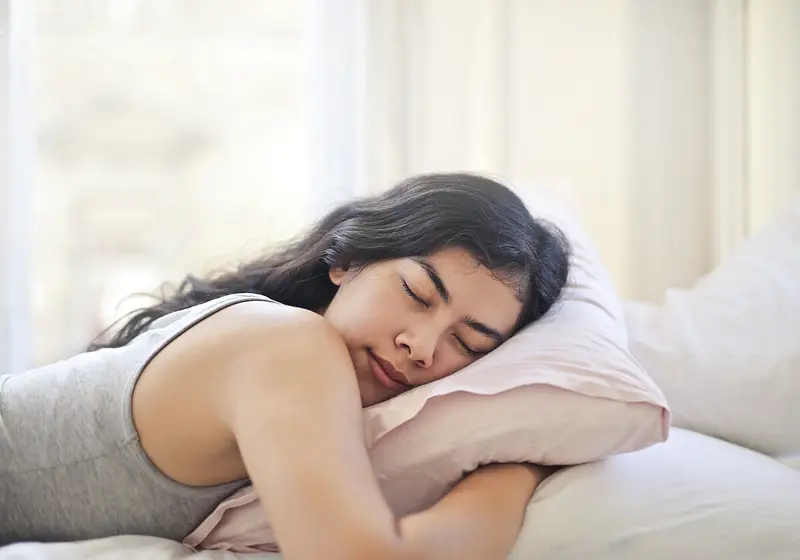Sleep is that period during a 24-hour day when humans rest their bodies and minds to fuel themselves before the day starts. I'm aware that, for the average human, it's hard to maintain healthy sleeping habits because we don't have enough time to prioritize those habits. More than a third of adults get less than 7 hours of sleep in 24 hours, and up to 50-70 million Americans struggle with chronic sleeping disorders.
I can vouch for myself and say that I am still, to this day, trying to improve my sleeping habits. I've tried strange meditation techniques and hypnosis and even gone back to the basics, like counting sheep, but I still haven't found that perfect solution. You won't be able to improve your sleeping habits overnight, but why not start now? That way, especially for students, when the school year rolls back around, you can continue implementing these beneficial tips to maintain healthy sleeping habits. So before you fall asleep to this introduction, I'll start sharing these easy and effective tips.
Let us slide into your dms 🥰
Get notified of top trending articles like this one every week! (we won't spam you)Consistent Sleep Schedule
The best place to start is by establishing a consistent sleep schedule. It will take some time to maintain, but if you're consistent with it, you won't even notice it. Setting a consistent sleep schedule is important because it reinforces your body's natural circadian rhythms, making it easier to fall asleep and wake up at the desired times.
If you've never heard the term circadian rhythm, don't worry; I hadn't either until recently. Simply put, your circadian rhythm is your body's natural 24-hour clock that helps regulate when you feel sleepy or awake. The first step to establishing a consistent sleep schedule is to go to bed and wake up simultaneously every day, even on weekends. It's highly unlikely that you'll be able to do this every night and morning for the rest of your life, but whenever you get the chance, try and be consistent with going to bed and waking up at the same time. Normally, I can maintain this the best during the school year, but I still try to maintain it through the summer. To avoid interrupting your sleep schedule, I recommend limiting your naps. I know that can be tricky for many people, and I'm guilty of it myself, but if you need to take a nap, keep it to a maximum of 30 minutes and try to avoid napping in the late afternoon.

Take the Quiz: Which Body Wellness Product Should You Add to Your Routine?
Taking care of your body is all about finding what works best for you. Take this quiz to discover the next must-have product for your self-care rou...
Optimize Sleep Environment
My second tip is to optimize your sleep environment. This is the most exciting tip because it is the most customizable. Believe it or not, your sleeping environment sometimes impacts your sleep hygiene the most.
The first thing you can do is experiment. What I mean by this is to experiment with temperatures, scents, and bedding. Knowing what works best for you can help you lock down your sleeping habits. Personally, I like to sleep with the temperature in my room set to the low 70s, and I love spraying lavender on my pillow a couple of minutes before bed. The lavender scent helps calm my whole body, and I find that sleeping at a temperature higher than 70 or even 80 causes me to shift around a lot when I try to fall asleep. You can also invest in blackout curtains, earplugs, or a white noise machine if needed. I advise you to avoid bright screens (phones, tablets, TVs) at least an hour before bed. Consider using "night mode" settings on devices or blue light filters if you must use screens. Studies show that even turning off electronics an hour before bed can significantly help rest your eyes. I recommend swapping out your electronics with a book or journaling about your day before bed.
Mindful Intake
My third tip is that most people don't think about a lot, but it's to be mindful of what you eat and drink. The first and most obvious thing to avoid before bed is caffeine. Caffeine is a stimulant that can interfere with your ability to fall asleep.
Avoid caffeine-infused drinks for at least 4-6 hours before bedtime. The next type of food you can avoid before bed is salty food. Foods with high sodium levels can impact the number of times you wake up during the night because they increase your blood pressure and fluid retention, which means you'll find yourself waking up in the middle of the night to drink water and even pee more because you lost the majority of it right before bed because of the salty food. It can also cause you to wake up bloated and puffier than usual. The final key drink to avoid before bed is alcohol. Alcohol can disrupt your sleeping pattern, just like salty foods. You should have your last meal and/or snack at least 2-3 hours before bedtime.
Regular Physical Activity
My final tip is to incorporate regular physical activity. Physical activity plays a large role in sleep quality, and if you go days without any physical activity, it can greatly affect your overall sleeping habits. Even if you get in just 30 minutes of physical activity daily, like walking, running, cycling, swimming, or any cardio-induced activity, it can benefit your sleep schedule because you drain your energy.
It's even better if you can complete these activities outside. Not only will you get your daily dose of vitamin D, but natural light exposure during the day helps regulate your sleep-wake cycle.
Conclusion
Incorporating these four straightforward tips into your daily routine can significantly improve your sleep quality and overall well-being. Establishing a consistent sleep schedule, optimizing your sleep environment, being mindful of what you eat and drink, and engaging in regular physical activity are all effective strategies for fostering healthy sleep habits. Although it may take time to see results, starting these practices now can set the foundation for better sleep, especially as you prepare for the upcoming school year or face the challenges of a busy life.
Remember, improving your sleep is a gradual process, but being patient and persistent can create a sleep routine that works for you. Embrace these changes as steps toward a healthier and more restful future, and you'll be well on your way to achieving better sleep and a more balanced life.









.jpg)


.jpg)

